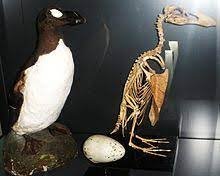On This Day In History, July 3rd
2013 Coup in Egypt
Egyptian defense minister Abdul Fatah al-Sisi staged a coup and forced out President Mohamed Morsi, just over a year after he was elected.
1988 Iran Air flight 655 is shot down by a US Navy ship
The USS Vincennes mistakenly shot down the airplane en route to Dubai, killing all 290 people aboard. The Vincennes, a guided missile cruiser, incorrectly identified the plane as a military aircraft. In 1996, the United States government made a cash settlement with Iran in order to close the case Iran had brought against the US in the International Court of Justice.
1962 Algeria gains its independence from France
Algeria's independence from France, after 132 years of French rule, was finalized after the signing of the Évian Accords in the spa town of Évian-les-Bains. The accords ended a 7-year-long violent war of independence. Independence was finally achieved after July 1, 1962, referendum favored complete Algerian independence. Ahmed Ben Bella became the first President of the country.
1863 Battle of Gettysburg ends
The 3-day long battle during the American Civil War was fought between the Union and Confederacy in-and-around the town of Gettysburg, Pennsylvania. Thought to be one of the bloodiest battles of the war – around 50,000 soldiers were lost on both sides – the Battle of Gettysburg marked a key turning point in the conflict. The decisive Union victory led to the retreat of Confederate soldiers from the north.
1844 The Great Auks go extinct
The last known pair of Great Auks, members of a species of flightless birds, were killed off the coast of Iceland at the request of a collector. It is believed that the extinction of these birds was caused by human activities and hunting due to the high demand for their feathers.



